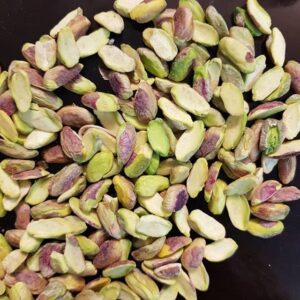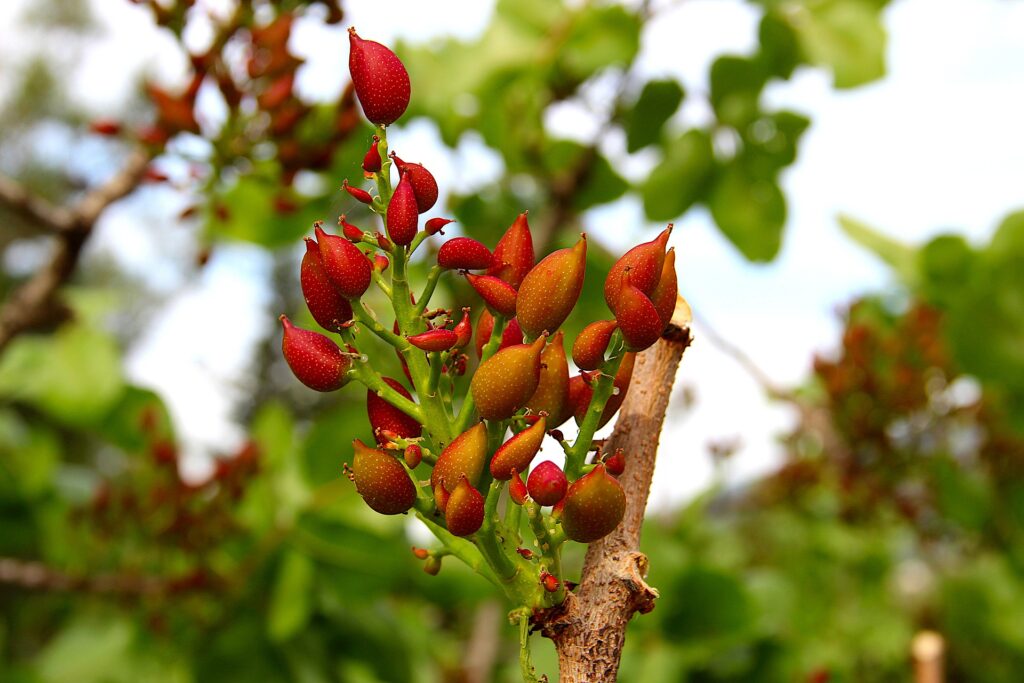Benefits for Blood Sugar Control and Tips for Diabetics
Introduction: Pistachios and Blood Sugar Levels
Pistachios are a popular snack, known for their rich nutrients, healthy fats, and satisfying crunch. For individuals concerned about blood sugar, such as those with diabetes or prediabetes, understanding how pistachios affect blood sugar levels is essential. This article explores whether pistachios raise blood sugar, their potential benefits for blood sugar control, and how to include them in a balanced diet.

Do Pistachios Affect Blood Sugar Levels?
Low Glycemic Index and Blood Sugar Impact
Pistachios have a low glycemic index (GI), meaning they cause minimal impact on blood sugar levels. Foods with a low GI release glucose slowly into the bloodstream, helping to prevent spikes in blood sugar. Pistachios also contain healthy fats, fiber, and protein, which contribute to their blood sugar-stabilizing effects.
- Low Glycemic Load: Even when eaten in moderate amounts, pistachios do not significantly increase blood glucose levels. This makes them a favorable snack option for people with diabetes or anyone looking to manage blood sugar.
- Rich in Protein and Fiber: Both protein and fiber play a role in stabilizing blood sugar by slowing down digestion and the absorption of sugars. Pistachios offer around 6 grams of protein and 3 grams of fiber per ounce, which can help maintain stable blood glucose levels.
Benefits of Pistachios for Blood Sugar Control
Nutrients That Support Blood Sugar Management
Pistachios are nutrient-dense, containing several components that support healthy blood sugar management. From heart-healthy fats to essential vitamins and minerals, pistachios provide a range of benefits for blood sugar control:
- Healthy Fats: Pistachios are high in monounsaturated and polyunsaturated fats, which have been shown to improve insulin sensitivity. Improved insulin sensitivity allows the body to use glucose more effectively, which can help lower blood sugar.
- Antioxidants: Pistachios contain antioxidants, such as polyphenols, which help reduce inflammation and oxidative stress. Since inflammation is linked to insulin resistance, these antioxidants may support better blood sugar management.
- Magnesium: This mineral is crucial for regulating blood sugar levels and improving insulin sensitivity. A single serving of pistachios provides around 8% of the daily recommended intake of magnesium.
https://pistachioexporter.com/does-pistachio-cause-acne/
Research on Pistachios and Blood Sugar
Studies suggest that adding pistachios to a meal can reduce blood sugar spikes. In a clinical study, participants with diabetes who consumed pistachios saw a significant reduction in fasting blood glucose levels and improved insulin response. The unique combination of protein, healthy fats, and fiber helps blunt the blood sugar response, making pistachios a suitable snack for people managing diabetes.
How to Include Pistachios in a Blood Sugar-Friendly Diet
Best Ways to Enjoy Pistachios for Blood Sugar Control
Adding pistachios to your diet can be a delicious way to support blood sugar balance. Here are a few tips for incorporating them effectively:
- Snack on a Handful: A 1-ounce serving (about 49 pistachios) is a good portion size to enjoy without worrying about excessive calorie intake. Eating pistachios on their own or with other low-GI foods makes for a balanced, blood-sugar-friendly snack.
- Pair with Low-Carb Foods: Combine pistachios with vegetables or other low-carb foods to create a satisfying, balanced snack. Adding pistachios to salads, yogurt, or smoothies can further reduce blood sugar spikes.
- Use in Moderation: While pistachios are beneficial, it’s essential to enjoy them in moderation due to their calorie density. For blood sugar management, keep portion sizes reasonable.
The Health Benefits of Pistachios
Considerations for Diabetics
People with diabetes or blood sugar concerns should avoid salted or flavored pistachios, as added sodium and sugars can interfere with blood pressure and blood sugar management. Opt for raw or dry-roasted, unsalted pistachios for the healthiest option.
